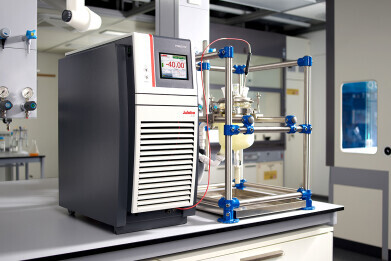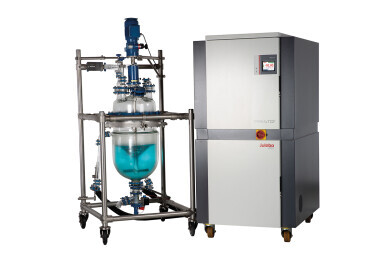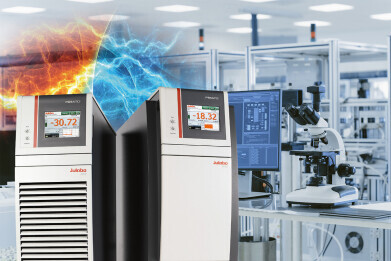Analytical instrumentation
Temperature Control in the Chemical Industry
Jun 18 2024
In the chemical industry in general and in process engineering in particular, numerous process sequences are bound to one temperature or can be supported by a specific temperature control application, and thus made more efficient. An example of the latter is the continuous temperature control of casting media. To maintain the necessary viscosity, the material pipes, pumps, and dosing unit can be heated in addition to the storage tank. Optimum temperature control of the casting material throughout the entire process not only makes it easier and faster to process - but it also simplifies the ascent and exit of air inclusions, which reduces production times and rejects, and improves quality. The temperature control systems used must be able to react continuously and quickly to changes and stabilize the process. Ideally, their performance is directly coupled to the viscosity of the casting medium, for example, and automatically adjusted to the optimum range using adaptive temperature changes.
However, the dynamic compensation of exothermic or endothermic chemical reactions poses far greater challenges to the temperature control systems. Especially if the reactions take place in extreme temperature ranges, the temperature control systems have to provide for fast compensation.
In both chemical and biological processes, the conversion of substances often takes place in reactors, which make it possible to create consistent conditions and a safe space for the reactions. This requires temperature control systems with fast and precise compensation and a wide temperature range. Therefore, temperature control systems are used, which react highly dynamically to temperature changes inside the reactor, compensate these quickly and reliably, and automatically adjust back to the optimum range. The reactor type, its size and the material (e.g., glass or metal) as well as the wall thickness, and the thermal conductivity associated with the material are, among other things, decisive parameters which, in addition to the process to be temperature-controlled, themselves influence the choice of the temperature control system. Pump capacity, pressure build-up, heat exchange rates, and the efficiency of the components in the temperature control system must precisely cover the respective requirements to guarantee process reliability and effective material conversion. If requirements deviate from the standard, specially developed temperature control solutions are also taken into consideration. In many cases, however, this is not necessary because temperature control systems available on the market can be easily and efficiently adapted to individual requirements.
The requirements for temperature control systems also depend on their range of application. When developing new procedures in the laboratory, not only performance and reaction speed but also a wide working temperature range, as well as a simple and flexible change between applications, are of decisive importance for the selection of a temperature control system. The temperature control systems can, therefore, be used in a wide variety of applications without any problems. Aspects such as the size and mobility of the device, water or air cooling as well as a sophisticated positioning of connections and vents make the decisive difference as to how suitable the temperature control systems are for everyday practical use.
Digital Edition
PIN 26.1 Feb/Mar 2025
March 2025
Analytical Instrumentation - Elemental Analysis for Quality and Process Control at Refineries, for Lubricants and Wear Metals in Engine Oils - Synthetic Lubricants: New Developments - Scaling...
View all digital editions
Events
Apr 08 2025 Birmingham, UK
Apr 08 2025 Kielce, Poland
Apr 08 2025 Ravenna, Italy
Apr 08 2025 Southampton, UK
Apr 08 2025 London, UK
























